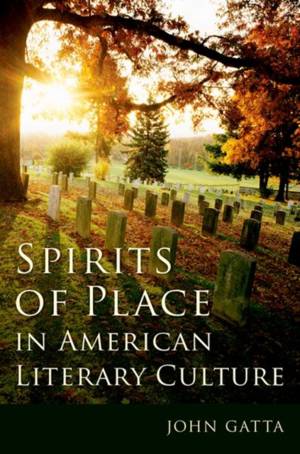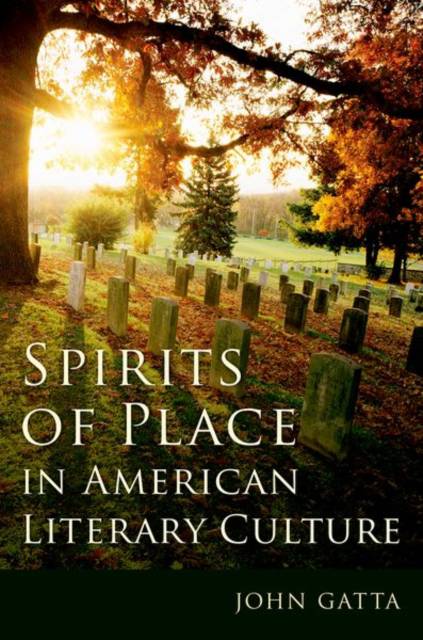
Je cadeautjes zeker op tijd in huis hebben voor de feestdagen? Kom langs in onze winkels en vind het perfecte geschenk!
- Afhalen na 1 uur in een winkel met voorraad
- Gratis thuislevering in België vanaf € 30
- Ruim aanbod met 7 miljoen producten
Je cadeautjes zeker op tijd in huis hebben voor de feestdagen? Kom langs in onze winkels en vind het perfecte geschenk!
- Afhalen na 1 uur in een winkel met voorraad
- Gratis thuislevering in België vanaf € 30
- Ruim aanbod met 7 miljoen producten
Zoeken
Omschrijving
What might it mean, existentially and spiritually, for humans to form an intimate relation with particular sites or dwelling places on earth? In ancient Rome, the notion of a locale's genius loci signaled recognition of its enchanted, enspirited identity. But in a digitalized America of unprecedented mobility can place still matter as seed ground for the soul? Such questions have been broached by ecocritics concerned with how place-inflected experience figures in literature, and by theologians concerned with ecotheology and ecospirituality. This book offers a uniquely integrative perspective, informed by a theological phenomenology of place that takes fuller account of the spiritualities associated with built environments than ecocriticism typically does.
Spirits of Place blends theological and cultural analysis with personal reflection, while focusing on the multi-layered witness presented by American literature. John Gatta's interpretive readings range across texts by an array of canonical as well as lesser-known writers. Along the way, it addresses such themes as the religious implications of localism vs. globalism; the diverse spiritualities associated with long-term residency, resettlement, and pilgrimage; why some sites seem more hallowed than others; and how the creative spirit of Imagination figures in place-identified perceptions of the numinous. Whether in Christian or other religious terms, no discrete place matters absolutely. Yet this study demonstrates how and why hallowed geography and the sacramentality of place have mattered throughout our cultural history.
Spirits of Place blends theological and cultural analysis with personal reflection, while focusing on the multi-layered witness presented by American literature. John Gatta's interpretive readings range across texts by an array of canonical as well as lesser-known writers. Along the way, it addresses such themes as the religious implications of localism vs. globalism; the diverse spiritualities associated with long-term residency, resettlement, and pilgrimage; why some sites seem more hallowed than others; and how the creative spirit of Imagination figures in place-identified perceptions of the numinous. Whether in Christian or other religious terms, no discrete place matters absolutely. Yet this study demonstrates how and why hallowed geography and the sacramentality of place have mattered throughout our cultural history.
Specificaties
Betrokkenen
- Auteur(s):
- Uitgeverij:
Inhoud
- Aantal bladzijden:
- 296
- Taal:
- Engels
Eigenschappen
- Productcode (EAN):
- 9780190646547
- Verschijningsdatum:
- 1/08/2018
- Uitvoering:
- Hardcover
- Formaat:
- Genaaid
- Afmetingen:
- 145 mm x 211 mm
- Gewicht:
- 476 g

Alleen bij Standaard Boekhandel
+ 154 punten op je klantenkaart van Standaard Boekhandel
Beoordelingen
We publiceren alleen reviews die voldoen aan de voorwaarden voor reviews. Bekijk onze voorwaarden voor reviews.









